Plumbing is a solid career choice for obvious reasons.
Even in a slow economy, everyone needs plumbing, so it is a recession-proof career.
As a plumber, you will oversee the installation and maintenance of plumbing fixtures like bathtubs, sinks, showers, and toilets for residential and commercial clients.
A career as a plumber is a great option for independent and practical-minded people who want to learn a skilled trade and work for themselves. Like many trade professions, the job market for plumbers has been growing much faster than the average in recent years, which means there is plenty of momentum for new plumbers to get on their feet in the professional world.
What is a Plumber
Before we start breaking down into simple steps what you need to do, and how to become a plumber let’s see what a plumber is and find out if you are made for this work.
As a plumber you will not only install new faucets and unclog drains. You will be working in commercial and residential areas, water treatment facilities, power plants, factories and water disposal plants maintaining, installing and fixing all kinds of pipeline systems.
While the job duties vary depending on the project you work at and the specialty you have chosen there are certain duties you can expect to perform as a plumber:
- Installing piping systems
- Maintaining piping systems
- Fixing piping systems
- Working with plumbing tools
- Reading and follow blueprints
- Designing piping systems
- Understanding what materials they need to use and why
- Performing basic carpentry
- Attaching and weld fillings
- Installing fixtures (toilets, showers, bathtubs)
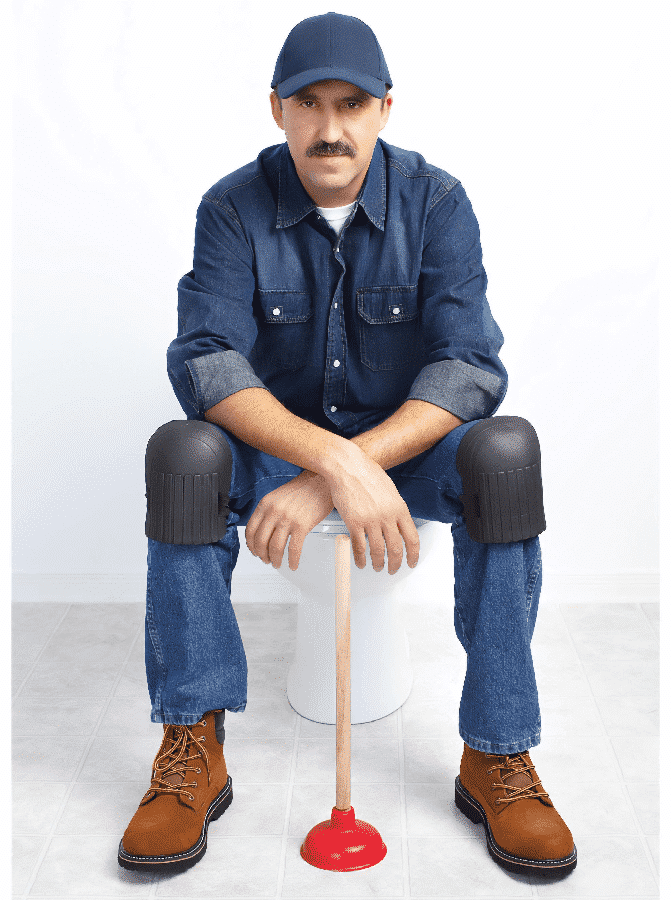
Plumbing Specialties
Pipelayers
Pipelayers install and set piping for different plumbing systems, like storm drains and water mains. If you decide to take this specialization you are expected to grade and dig the trenches where you will install the pipes, install them and attach them together by gluing, welding, or cementing.Pipefitters and Steamfitters
As a pipefitter you will get mostly involved in huge industrial projects. You will install electricity generation systems, cooling and heating piping systems and maintain them. As a steamfitter you will specialize and work in high pressure piping systems that move liquids and gases like compressed air steam or water. The average salary of a plumber is .Desirable Skills & Qualities of a Plumber
Plumbing is a highly specialized and skilled discipline so plumbers must be equipped with the requisite skillset and desirable qualities.
Mechanically inclined
Plumbers are expert tinkerers and must frequently take apart plumbing systems, figure out how they work/where the problem lies, and then fix and put the system back together. As such, plumbers tend to be very mechanically minded and have a knack for figuring out how things work. They must understand the mechanics of water flow, pumping, draining, and the different materials that pipes are made out of.
Dexterity
Plumbers work with their hands so they must have a steady grip and precise control over their hand movements. For example, a particular valve may have to be tightened to just the right amount to get the right water pressure from the shower. A plumber must know how to feel out these “sweet spots” and make the minute changes necessary to make them work. Plumbers tend to work in smaller enclosed spaces and use a variety of different tools while on the job so they must be dexterous and have good hand-eye coordination.
Problem-solving skills
Plumbing systems can be complex and difficult to understand, particularly if they are old systems that have been reworked and refurbished many times. Plumbers must have an analytical mind and be able to reason about solutions to any problems they encounter on the job. It could be that a client calls for help with their sink plumbing and you may find a larger problem with their houses piping. Because the requirements of the job can change so quickly plumbers must think on their feet and adapt to new situations.
Punctuality
As a plumber, the majority of your work will take place in the homes of clients. The job requires a fair bit of travel and plumbers must be punctual with their schedules. If they say they will be there at 9 AM, they need to be there at 8:50 AM ready to go. Very often clients are strapped for time and don’t have the luxury of waiting around for a late plumber. So it is in their best interest to adhere to a tight schedule and be on time.
Experience
Plumbing is somewhat of an art and some art can only be learned through doing. The most successful plumbers leverage their years of professional experience and bring an eye of expertise to the workplace. The best plumbers are so experienced they can immediately examine and diagnose problems with plumbing. Their experience also makes them flexible and capable of tackling a problem with a wide variety of strategies.
Business sense
About 11% of plumbers are self-employed and this number keeps getting larger. Self-employed plumbers often own their own plumbing businesses so they need to be familiar with the ins and outs of running a business. This includes things like management, taxes, payroll, insurance, and licenses. Self-employed plumbers tend to have the highest potential earnings.
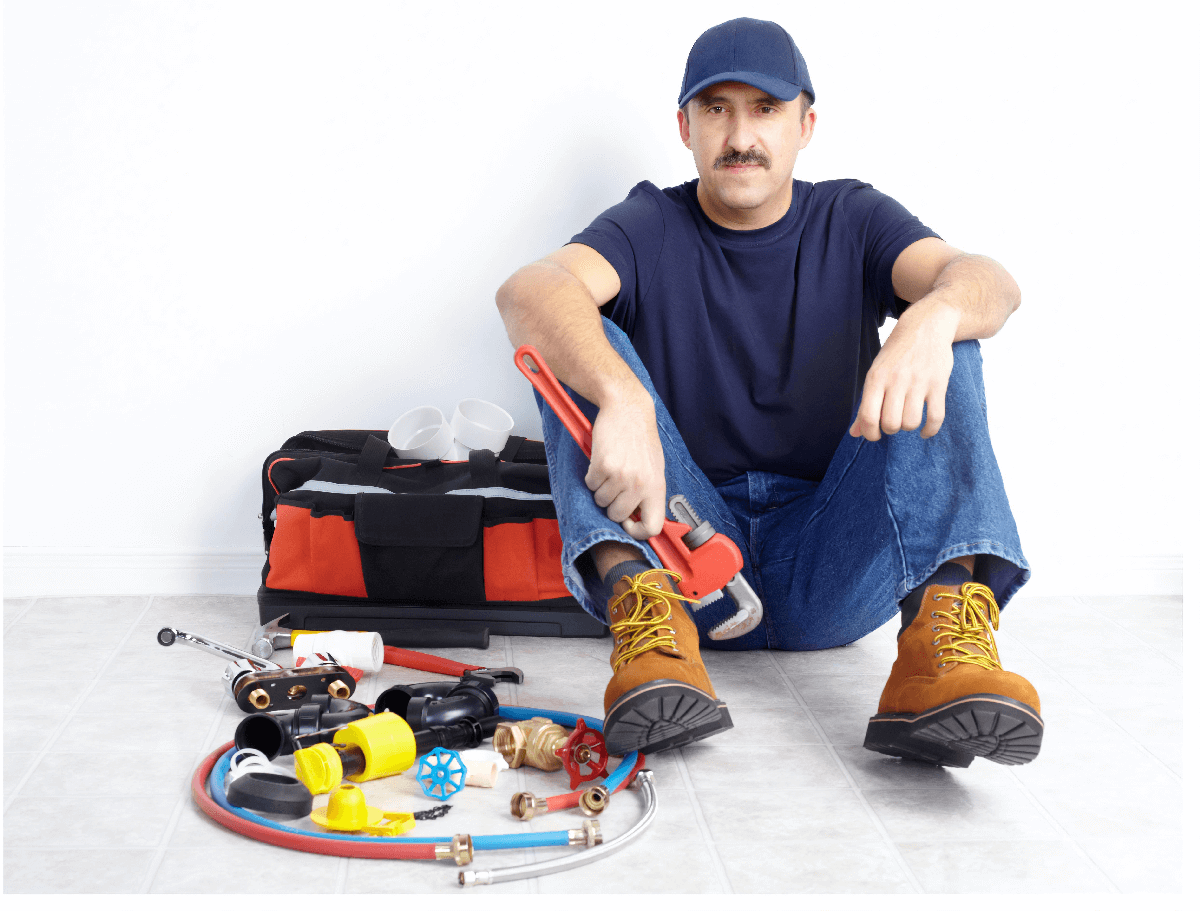
Plumber Work Environment
Plumber work in a bunch of different environments: homes, factories, businesses, schools, and more.
Wherever there is water needing to be moved around, a plumber is needed.
Being a plumber involves a lot of travel as most of the work is on-site.
Plumbers deal with heavy materials and tools that can be dangerous if not handled properly. As such, cuts from sharp tools, burns from hot pipes and water, and falls from ladders are common injuries in the profession.
Plumbers also frequently work in tightly enclosed spaces like under sinks and in cupboards, so leg, back, and knee problems are common.
Most plumbers work full-time, including nights and weekends. They are often on call to handle plumbing emergencies.
The busiest times of the year for plumbers are during the early months of the summer and the colder months of the winter.
Becoming a Plumber
Plumber Education Requirements
The only education required to be a plumber is a high school diploma or equivalent degree.
Formal schooling in plumbing is not necessary to get a job in the field, though it certainly can help your prospects.
Plumbing education programs are offered at community colleges, vocational schools, and technical colleges.
Most plumbers are required to complete an apprenticeship before they can work on their own.
During a plumber apprenticeship, you will be working on actual plumbing systems under the supervision of professional plumbers.
As with many trade professions, plumbing apprenticeships take about 4 to 5 years to complete are geared towards providing apprentices with the skills and technical know-how to become a licensed journeyman plumber. The easiest way to find a plumbing apprenticeship is through a local plumbers union. Unions will pair students with apprentice programs and offer in-class instruction.
Most states require plumbers to have a license to operate. The steps to licensure differ from state to state but most often involve meeting a minimum amount of hours worked and passing a written and practical exam.
Optional: High School Preparation
Your first job if you want to become a plumber is to finish high school. All plumber schools require a high school diploma or GED.
You also need to get good grades at certain classes, as employers who are looking for apprenticeship candidates request ACT scores.
Math classes
As a plumber you will have to take measurements and make complicated calculations daily, so taking good grades at courses like algebra and calculus will not only help you get accepted at a school and find an apprenticeship but also will make your daily routine as a plumber easier. It is also a good idea to take geometry classes as it will be a very useful knowledge to have when installing pipes.
Science classes
Another great class to attend and get good grades is physics, especially if you are planning to follow the pipefitting and steamfitting route, because you will be working with high pressure and electrical generation systems.
Computer classes
If you want to advance your plumbing career a good idea is to get Engineering Design/CAD classes. They will help you get accustomed to computer based programs that you will use when you will design a piping system.
Accreditation
Plumbing training programs are can be accredited through the Accrediting Commission of Career Schools and Colleges (ACCSC).
While it is not necessary to attend an ACCSC accredited training program to become a plumber, attending an accredited program signals to employers and mentors that you have passed a curriculum laid down by a nationally recognized governing body of plumbing professionals.
Accredited programs have been examined to ensure they adhere to high educational and training standards.
What You’ll Study
Despite what people may think, plumbing requires sophisticated study.
Aside from having practical know-how on how to work with plumbing systems, plumbers must have a good understanding of hydrostatics and hydrodynamics, math, physics, and computer science for drafting blueprints.
Plumbers also need to learn all the rules, regulations, and testing procedures to make sure water systems are up to code as well as all the different types and materials of pipes.
Many plumbing training programs incorporate business and management courses for those who want to start a plumbing business.
Training Information & Types of Plumber Degrees
Both, certificates and associate’s degrees for plumbing are aimed at preparing students to get a plumbing apprenticeship and work in residential, commercial, and industrial situations.
They also teach safety information, pipe identification, and trade terminology.
Certificate programs normally take about 1 year to complete and associate’s programs about 2 years.
In general, any plumbing training program will require applicants to have at least a high school degree or GED.
These programs also tend to incorporate other related trades as well, including gas fixtures, pipefitting, and sprinkler fitting.
Option 1: Plumber Certificate Program
Completing a certificate program is the simplest education option for potential plumbers.
Training in a certificate program is technical in nature and focuses on individual aspects of the trade. Most courses focus on plumbing techniques, tools, processes, and regulations and involve a large hands-on component.
Certificate programs are meant to get people actually working as quickly as possible.
Admission Requirements
Plumbing certificate programs normally require applicants to have at least a high school diploma or GED. A handful may require applicants to have some previous professional experience. Some programs may also require a drug screening or criminal background check as you will be working in peoples’ homes.
Courses
- Blueprint reading
- Heating & ventilation
- Plumbing tools and equipment
- Measuring and calculations
- Welding
- Plumbing materials
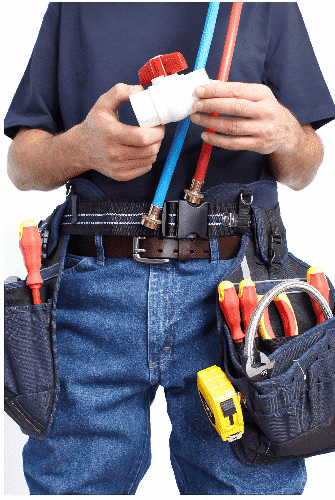
Option 2: Plumber Associate’s Degree
The other education option is to pursue an associate’s level program in plumbing.
Associate’s level programs cover the basics found in a certificate program but incorporate more complex material like sanitation systems, ventilation systems, and the designing of water distribution systems.
These programs also tend to feature courses related to running a plumbing business. Most associate’s level programs in plumbing technologies take about 2 years to complete.
Admission Requirements
Associate’s level programs in plumbing technologies normally require applicants to have a high school diploma, official transcripts, and letters of recommendation.
The majority of associate’s level programs do not require standardized tests like the ACT or SAT but you may have to take a placement exam like the ASSET of COMPASS.
Courses
Associate’s level courses involve the fundamentals of plumbing as well as other related disciplines.
A hypothetical course load might look like:
- Plumbing technology processes
- Computer blueprint drafting
- Pipefitting
- Draining and sanitation systems
- Plumbing management
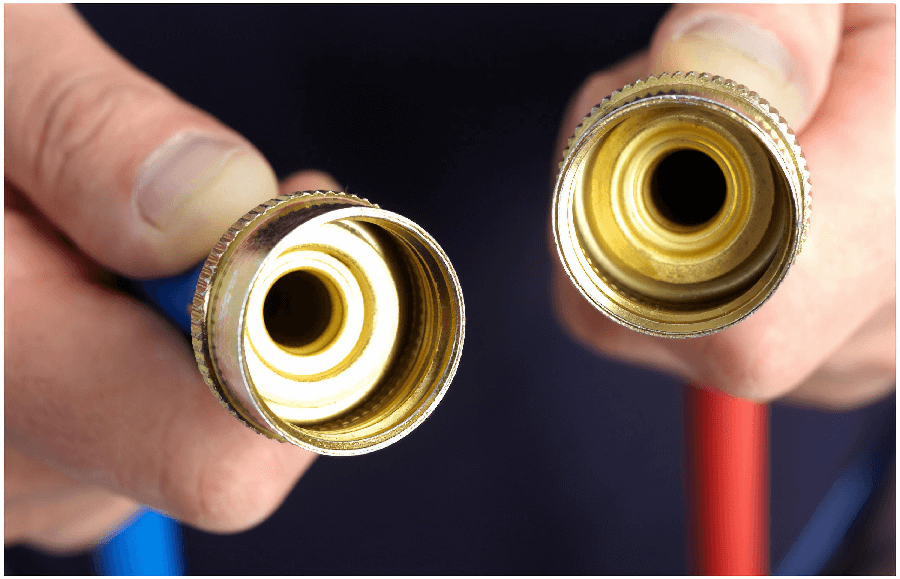
Online Plumber Programs
Online plumbing trade schools are relatively rare but they do exist.
A handful of community colleges and private colleges offer them.
Classroom instruction is normally asynchronous and assignments are due via email by the end of the course module.
While online courses are simple to take and save a lot of time and money, they can be lacking in the depth of their practical instruction.
That is why many online plumbing programs require in-person training in the form of an apprenticeship or externship.
How to Get Your Plumber License
Plumbers are among some of the most closely regulated jobs in the US.
The majority of states have licensing requirements for plumbers and these requirements differ from state to state. In general, in order to apply for your plumbing license, you must first successfully complete a plumbing apprenticeship under the tutelage of a journeyman or master plumber and pass a licensing exam.
Once you pass the exam, you will receive your plumbing license and can work as a journeyman plumber.
Plumbing licenses do not stop there though. After working as a journeyman plumber for at least 2 years, you can apply to become a master plumber.
A master license indicates that one has advanced plumbing skills and a firm grasp of federal rules and regulations regarding water distribution systems. Master plumbers tend to work in supervisory roles.
License Renewal
Most states require licensed plumbers to complete some hours of continuing education courses to maintain and renew their license. The exact requirements differ from state to state but licensing and renewals are normally handled by the state Department of Labor & Industry.
Summary
Let’s go over the basic steps to becoming a plumber.
Step 1. Complete a plumbing education program
The first step is to complete a plumbing education program. The simplest option is to finish a 1-year certificate program although you can opt for a 2-year associate’s degree in plumbing technologies.
Step 2. Get an apprenticeship
Your apprenticeship is probably the most important part of your training as a plumber. The average apprenticeship in trade professions normally take 4-5 years to complete. The best way to find apprenticeships is to apply through a local plumbers union.
Step 3. Get licensed
The next step is to pass the licensing exam and get your journeyman plumbing license. The licensing requirements vary depending on the state but most often require a minimum amount of hours worked and completion of an apprenticeship.
Step 4. Get experience, become a master (optional)
After working as a journeyman plumber for at least 2 years, you can apply for your master plumbing license. Master plumbers typically face better pay and are capable of working on a wide variety of plumbing projects.
Plumber Job Growth, Salary & Outlook
Plumbers face excellent starting salaries and fantastic potential for career growth.
The 2018 median annual salary for plumbing service professionals was $53,910 ($25.92/hour) and the field is expected to grow by 16% from 2016 to 2026.
Plumbing is also a highly unionized profession so many plumbers get strong union benefits like sick leave, vacation, insurance, and paid time off.
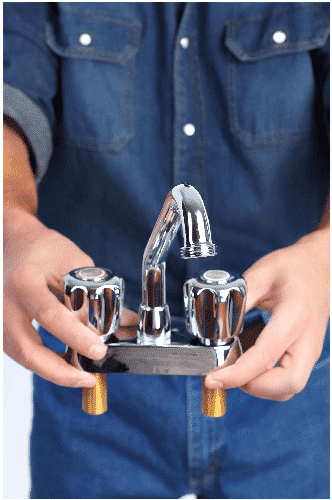
How Much Does It Cost to Become a Plumber?
- The average online plumbing course costs between $800-$1,000
- The average in-person plumbing certificate program costs between $1,250-$3,000
- Plumbing apprenticeships normally cost about $700 per semester, though apprentices often get paid for their work to offset this cost.
How Long Does It Take to Become a Plumber?
It takes about 5 years to become a fully licensed journeyman plumber. It takes around 8-10 years to become a master plumber.
Associations, Groups & Resources for Plumbers
- Plumbing-Heating-Cooling Contractors Associations (PHCC)
- United Association
- Plumbing Contractors of America (PCA)
Frequently Asked Questions
To become a licensed plumber you must meet any licensing requirements in your state. These requirements differ depending on the state so make sure to check with your state’s Department of Labor and Industry for plumbing licensing requirements.
A journeyman plumber is the “mid-level” career point for plumbers. Journeyman plumbers are fully licensed and can work independently but may lack the skill and expertise of master plumbers.
A master plumber is the highest designation in the profession. Master certification is acquired by passing a state-regulated master license exam.
You can apply for your master plumber license after working as a journeyman for at least 2 years. The master license exam involves a written component and a practical part. Depending on the state, you may be required to meet some minimum amount of hours worked as a journeyman.
The only qualification you need to get into a plumbing education program or apprenticeship is a high school degree or GED. To become a journeyman plumber you need at least 4 years working as an apprentice and to pass a licensing exam. To become a master you must pass the master license exam.
Plumbers work in tight cramped spaces with heavy and sometimes sharp tools. Common injuries in the plumbing profession include cuts, scrapes, bruises, and burns from hot water, as well as leg back and knee pain from working in cramped spaces.

